Traveling the world as a remote worker has become more and more common in the past years, and the percentage of people who work remotely will certainly increase even more in 2020. Research by MBO Partners found that 4.8 million US citizens identified as digital nomads in 2018, and that leaves a lot of employees with the opportunity to work and travel.
Table of contents: ()
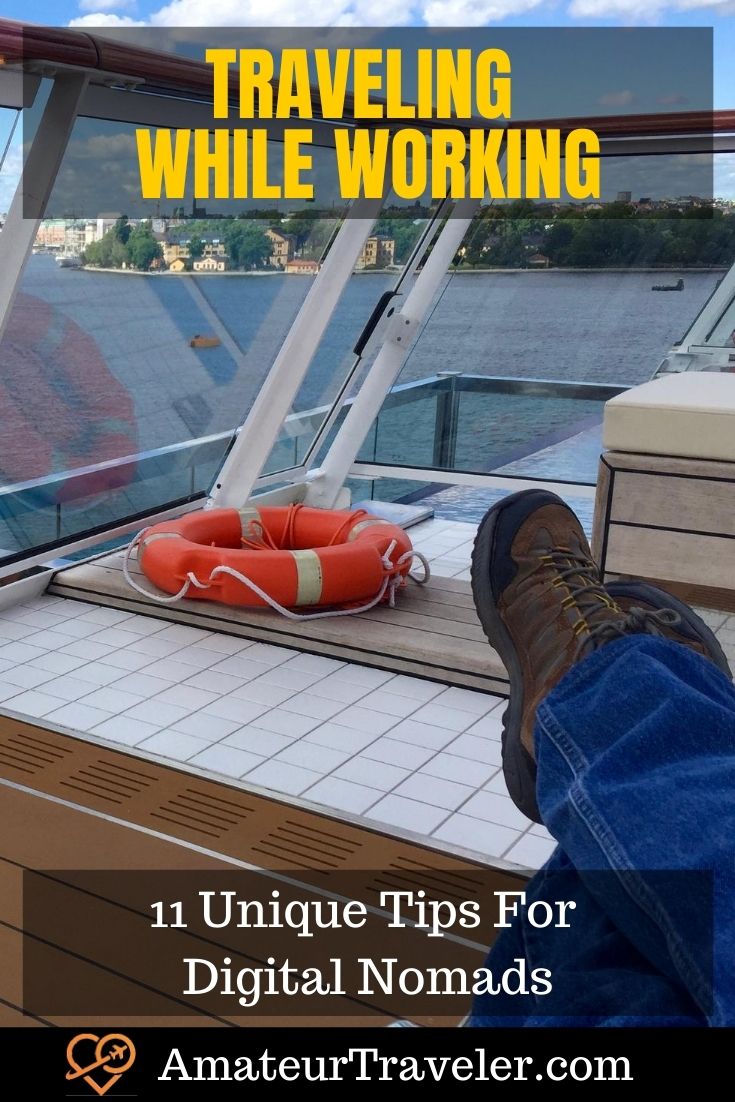
- Work from a coworking space
- Constantly check new remote job opportunities
- Always stay connected with colleagues
- Minimize distractions to travel the world
- Leave your home
- Adapt your schedule to your new timezone
- Investigate the internet speed
- Keep some days off to explore the countries you travel to
- Don’t forget to exercise
- Manage your expectations
- Learn to unplug on time
- Tips to Travel the World When Working Remotely – The Bottom Line
According to a report from Buffer, 26% of workers see the flexibility to work from anywhere as the second biggest benefit to working remotely.
In this article, you’ll discover the best 11 unique tips to travel the world while working remotely. Whether you are an experienced digital nomad, a remote company’s new employee, or a freelancer willing to explore new countries, you have come to the right place.
Work from a coworking space
Doing your job at a coworking space has great benefits that shouldn’t be underestimated. While it isn’t free to work at one, compared to working from home or at your rental apartment, there are some benefits that are worth your money. For instance, many coworking spaces play concentration music, provide water or coffee, and have comfortable chairs.
Other than being great to meet new people with the same lifestyle and enjoy a nice working location, it can prevent you from falling into the loneliness trap. A report from Buffer revealed that 20% of remote workers find loneliness to be their biggest struggle, just as much as collaboration and communication.
That same survey shows that only a small percentage (14%) of remote workers get things done at a coworking space, with coffee shops and cafes being the number one place where people work by far. While coffee shops are great to work at, we think that remote workers should use coworking spaces more, as they are more prepared in terms of internet speed, desks, silence, and more.
Constantly check new remote job opportunities
Checking new remote job opportunities is an important part of working from anywhere that many employees or freelancers do on a daily basis. Having a stable job is essential when working remotely, but this doesn’t mean that you can’t search for new opportunities to earn more money or even improve your work-life balance.
A study by Flexjobs found that, in the last 5 years, there was a 44% growth in remote work, and this will certainly increase even more with the 2020 pandemic crisis.
As an extra income, you might want to keep your stable job and look for new clients to work as a freelancer. Platforms like Upwork, People per hour, or Fiverr are great ways to work a bit more on the side and therefore earn more money, which is always convenient when traveling.
Always stay connected with colleagues
Keeping in touch with colleagues is important in a normal office job, let alone when working remotely. In fact, staying connected allows you to increase collaboration with colleagues, avoid loneliness, and even creates a sense of competition and therefore productivity.
There are a number of essential tools for digital nomads that can help to work remotely. A study by Staples revealed that 36% of companies use cloud-based file management tools such as Templafy, 34% provide instant messaging services like Workplace, and 13% use collaboration software, for instance, Slack or Trello.
- Book Your Accommodation HERE
- Get a Car Rental
- Buy Travel Insurance
- Search for Great Tours HERE

Research by the Queens University of Charlotte, shared by BIT.AI, found that 75% of employers think that teamwork and collaboration are very important.
Staying connected with colleagues is one of the unique tips to travel the world while working remotely that you should work on.
Minimize distractions to travel the world
Distractions at work while traveling the world are one of the things that will break your day. In fact,
A survey by Udemy cited the best benefits of decreasing distractions at work from interviewees. Some of the examples of percentages, depending on the distraction, are the ones below:
- 54% said “I don’t perform as well as I should”
- 51% said “I’m more confident in my ability to do my job well”
- 50% said “I’m significantly less productive”
- 20% said “I’m not able to reach my full potential”
Distractions can make you waste tons of time, be less productive, and obviously make you enjoy your travels much less. They can also make you less valuable to your employer and less likely to keep that job.
Leave your home
I think that we can all agree that you don’t travel around the world to stay locked inside your apartment. While working and traveling doesn’t (unfortunately) mean always having fun, it definitely means to leave your place and enjoy life around you.
Although working remotely allows members of staff to work anywhere they want, 84% of remote employees still prefer to work at home.
Of course, working at home is comfortable, less distracting, and sometimes calmer than coffee shops or coworking spaces. However, finding the time to go outside to clear your mind or exercise is a great way to be more productive and enjoy the city just like the locals do.
Adapt your schedule to your new timezone
Adjusting to a new timezone is certainly a challenging part of working while traveling that you should consider before leaving your home country.
Having a different timezone than your colleagues might remarkably impact your working and general experience as a digital nomad. Other than potentially messing up your sleeping routine by working late (or early), it can also impact your mind and reduce collaboration with colleagues in the standard timezone.
When possible, always adapt yourself to your new timezone, within reasonable limits. For instance, try to set your schedule to start work 2 hours before your colleagues. This will give you the chance to still get to work together and have a more relaxed routine.
Investigate the internet speed
It’s no secret that the internet speed can make or break your day when working while traveling the world. What might be the standard speed back home might be an incredible hard-to-read connection on the other side of the world.
For instance, the internet in the Philippines will be much slower than in South Korea, just like the connection will be much faster in Canada than in Morocco.
The internet speed you’ll need also depends on your jobs and the types of things you need to do. For example, a content writer won’t need a very stable internet connection to write blog posts and research information. However, a videographer in need of downloading large files will need high-speed internet to work as efficiently as possible.
Keep some days off to explore the countries you travel to
Traveling the world when working remotely is a lifetime goal for many people, and once you get used to it, it’s difficult (if not impossible) to go back to the 9 to 5 office life.
Keeping some days off in your schedule is essential to keep a good mood, to remain creative and productive during working hours, and to discover the countries you’re in. Traveling and working is great but organizing a schedule allowing you to do it the right way is even more essential.
A survey by CoSo Cloud revealed that 23% of remote employees are willing to work longer hours than they normally would in an office to get more things done. On the other hand, 52% of remote workers are less likely to take time off when working remotely…even when they’re sick!
Caitlin Reddington, Junior Digital Editor at All Things Hair US once said on their website “Sticking to a consistent schedule and routine has helped me stay productive while working from home. I’ve also enjoyed taking advantage of my extra free time. I feel like I’m always on the go, so it’s been nice being able to catch up with friends I haven’t talked to in a while, watch TV shows I’ve been wanting to see, and exercise more often.”.
Caitlin is right and we should all follow that example going out, exploring local sights, or video calling our friends back home.
Don’t forget to exercise
Who said that traveling the world while working remotely doesn’t mean being lazy and not exercising? Working out in an important part of life that shouldn’t be skipped for any reason.
A study by the Centre for Disease Control and Prevention found that 23.2% of US adults met the recommendations for weekly aerobic and muscle-strengthening activity. This is certainly not a high percentage, and we should all work towards our physical well-being, even when working and traveling.
Moreover, Harvard Medical School published interesting research. Karmel Choi, a clinical at the Harvard T.H. Chan School of Public Health saw a 26% decrease in becoming depressed for each measured physical activity. He shared that this decrease in health risks is what we can see on your activity tracker if we replace 15 minutes of sitting at our desk with 15 minutes of jogging, or one hour of sitting with one hour of moderate activity such as cycling.
John F. Kennedy, 35th US president, once shared his experience about exercising and fitness. He said “Physical fitness is not only one of the most important keys to a healthy body, it is the basis of dynamic and creative intellectual activity.”
Exercising is just as important as being productive at work or communicating when traveling the world. For example, book an apartment in a residence with a gym, or a hotel room with a swimming pool, or simply stay close to a walking street to run outside.
Manage your expectations
We’ve all seen these Facebook and Instagram posts where digital nomads work from the beach, from the jungle, or by the swimming pool of their residence. Well, that’s not really how the remote working life functions, at least not as often as most people might think.
In fact, to work remotely, you’ll need a strong and stable internet connection and a calm place where you’ll be able to focus. Obviously, beaches and jungles are usually not the place with a good internet connection and certainly not the perfect place to remain focused for a long time.
Steven Hawking, an incredibly intelligent theoretical physicist, once shared his experience of expectations. He said “my expectations were reduced to zero when I was 21. Everything since then has been a bonus”.
We should all take Hawking as a role model and not expect anything. Take the experience of working and traveling as an experience only, and see if you like it.
Last but not least, working and traveling is not only getting done with our shift and going to the beach, and it’s actually more complex. Think about the visa process, booking hotels all the time, buying flight tickets, being stuck in a place you don’t like, and so on. Managing your expectations will make you enjoy the experience much more than if you had high hopes.
Learn to unplug on time
Logging out when working and traveling the world is even more important than it is when working from home back in your country. The time you spend overworking could be free time spent traveling around,visiting local attractions, or joining a tour.
Unplugging is a big challenge for remote workers. According to a survey by Buffer, 22% of remote employees state that unplugging after their shift is the number 1 biggest challenge, even before loneliness.
Also, a study by And Co from Fiverr shows us that 28% of remote freelancers find the inability of shutting down to be their biggest challenge.
We can easily quote Thomas A. Edison, an American investor, who said that “The perils of overwork are slight compared with the dangers of inactivity.” We can only agree with Edison, as overworking is bad for our health, we aren’t really productive, and we could spend our time doing something actually useful.
Constantly overworking after your shift is definitely not a good idea when traveling the world. Other than the fact that it takes time that was supposed to be there for you to enjoy life, it also leads to health risks such as anxiety and frustration.
Tips to Travel the World When Working Remotely – The Bottom Line
These were the 11 most unique tips to travel the world while working remotely that you should follow as soon as you get to your new place. Working and traveling is not only about enjoying life to the fullest, but it’s also working very hard, staying productive, and being prepared for last-minute problems.
Working remotely is great, and according to a report by And Co from Fiverr, 80% of digital nomads intend to keep their lifestyle for as long as they want to keep traveling.
The last tip we could give our readers would be to stay longer in a place than you normally would on holidays. In fact, working 6 or more hours per day will significantly reduce the time available to explore the city, and you will, therefore, want to take things more slowly
One Response to “11 Unique Tips For Digital Nomads – Traveling While Working”
Leave a Reply
Tags: article, digital nomads


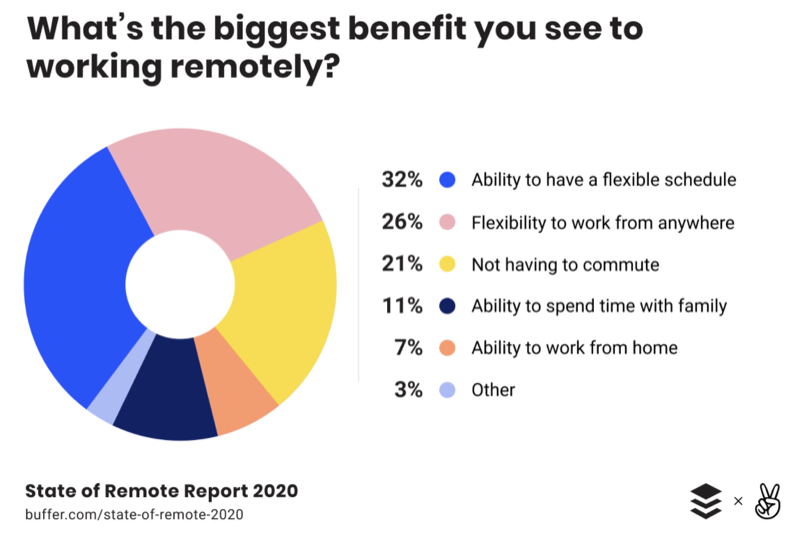
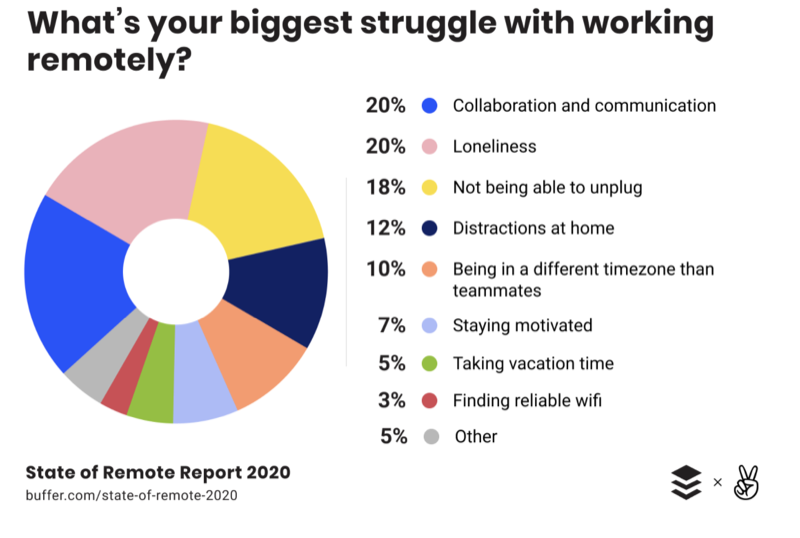
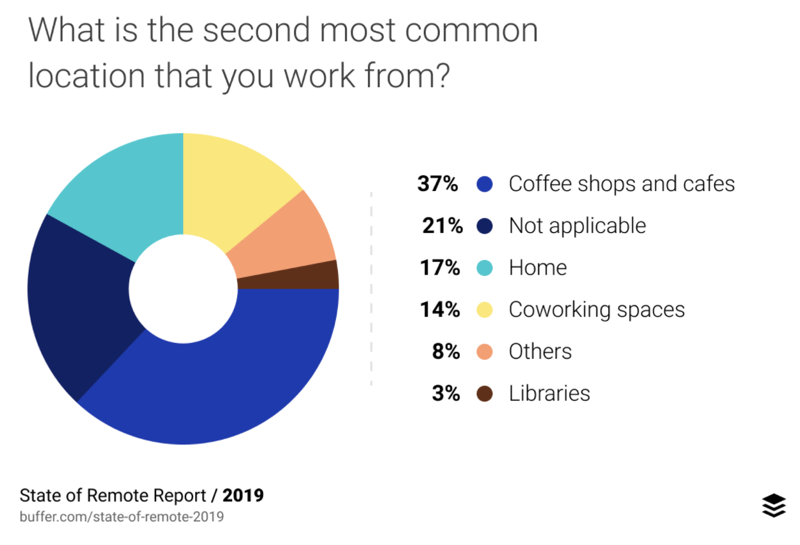
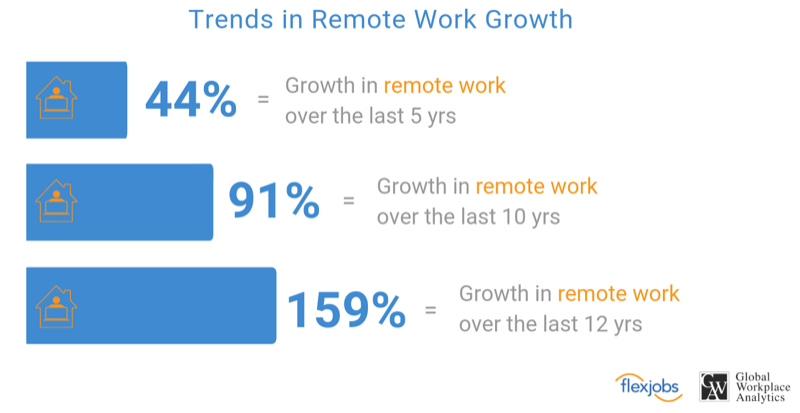
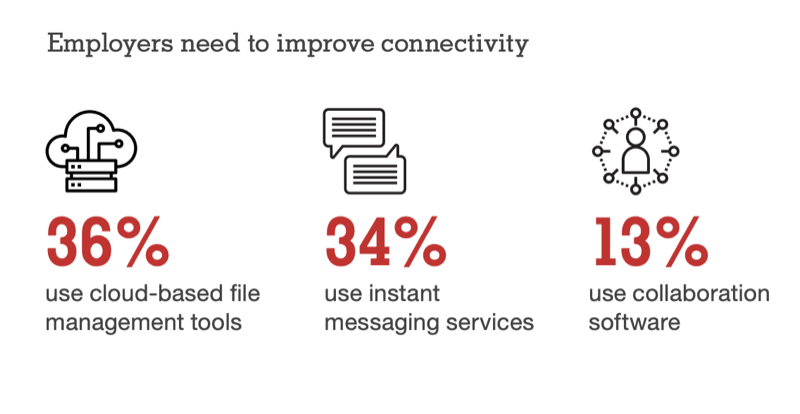


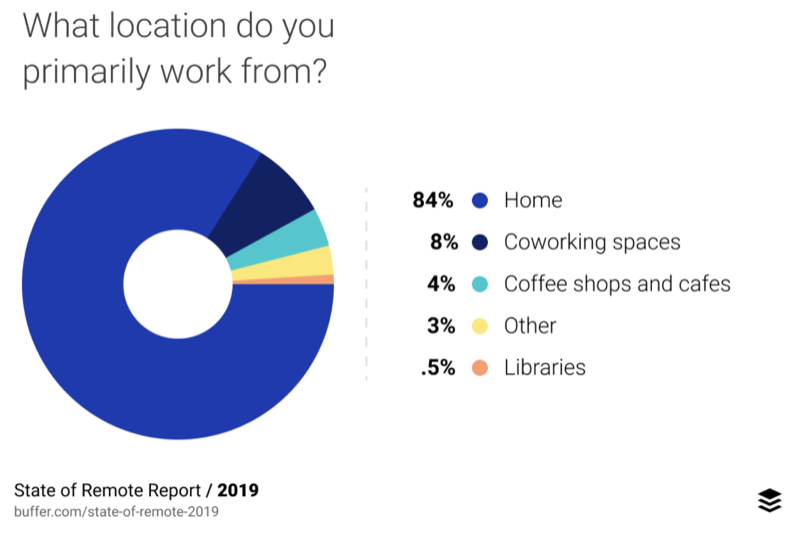

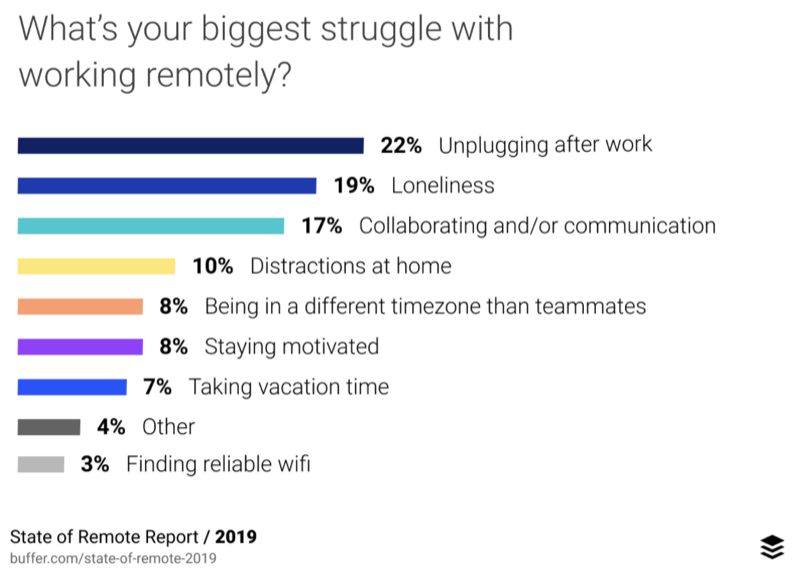
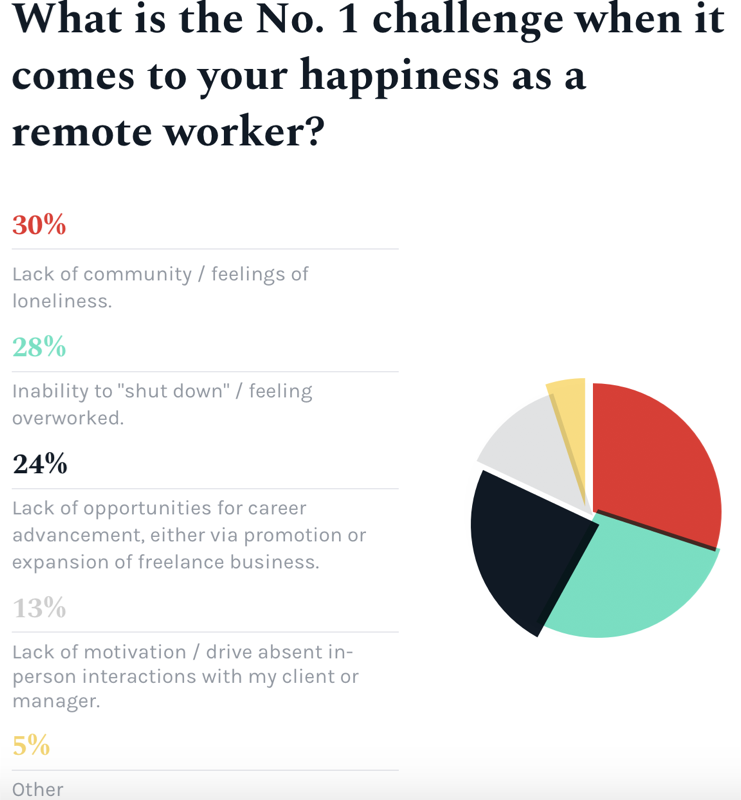
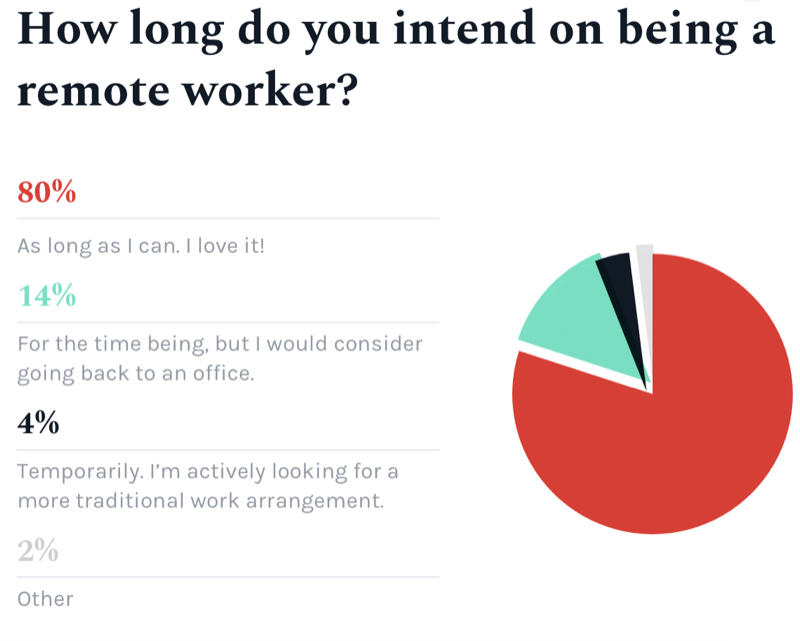
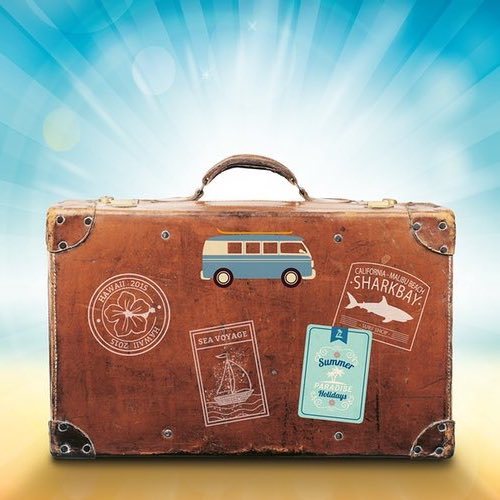 7 Essential Tools For Digital Nomads
7 Essential Tools For Digital Nomads 8 Tips for Traveling with a Bad Back
8 Tips for Traveling with a Bad Back 9 Tips for Travel Bloggers with a Day Job
9 Tips for Travel Bloggers with a Day Job Book Review – Traveling “On The Other Guy’s Dime”
Book Review – Traveling “On The Other Guy’s Dime”

Liana
Says:April 6th, 2023 at 9:37 am
thanks for info